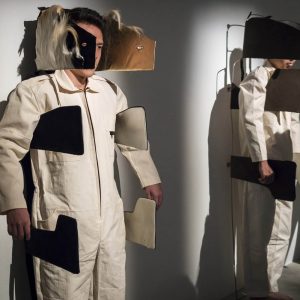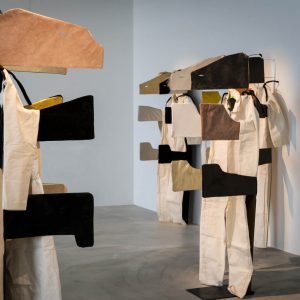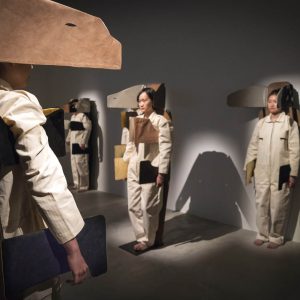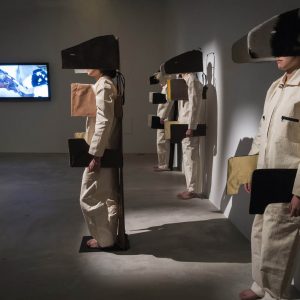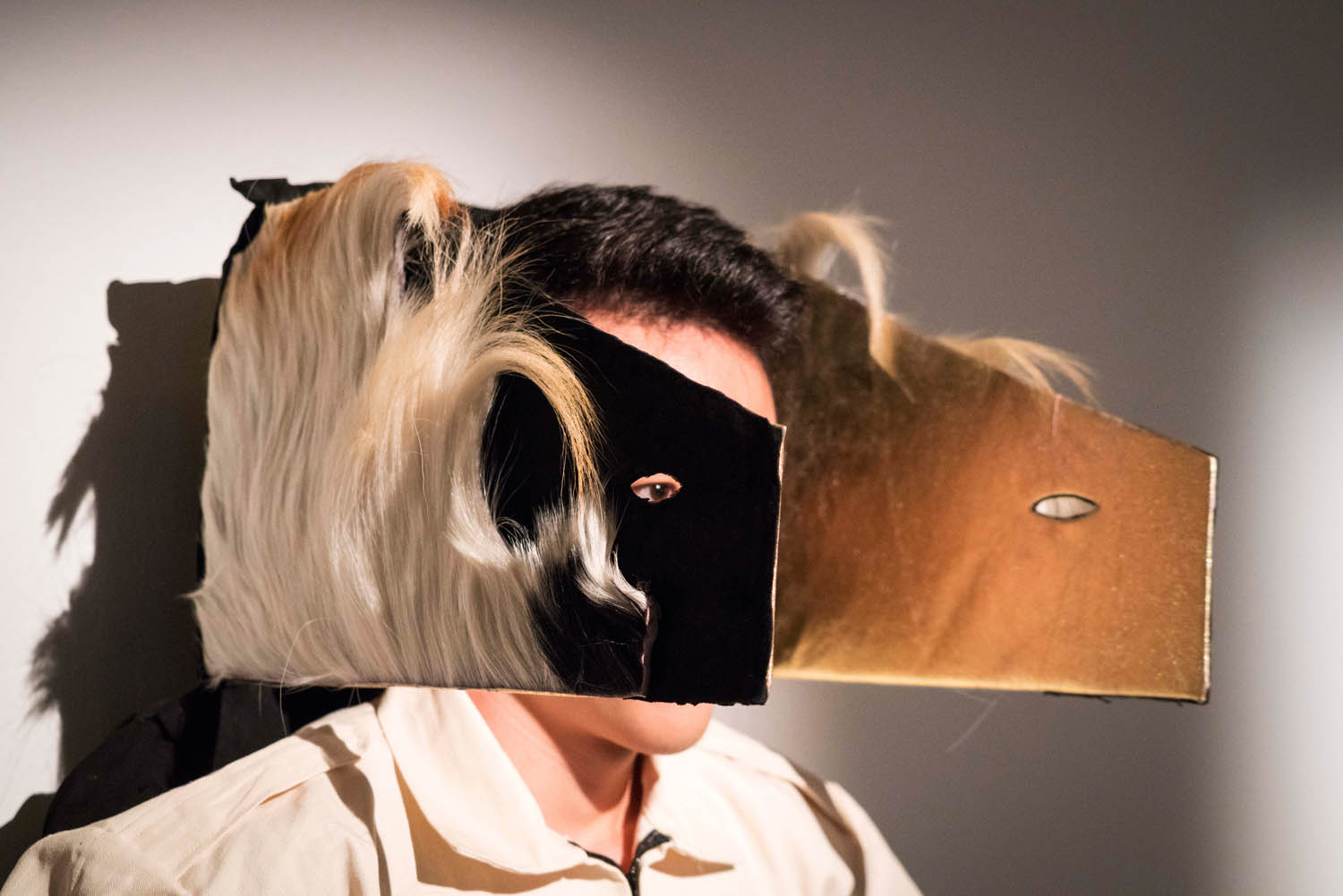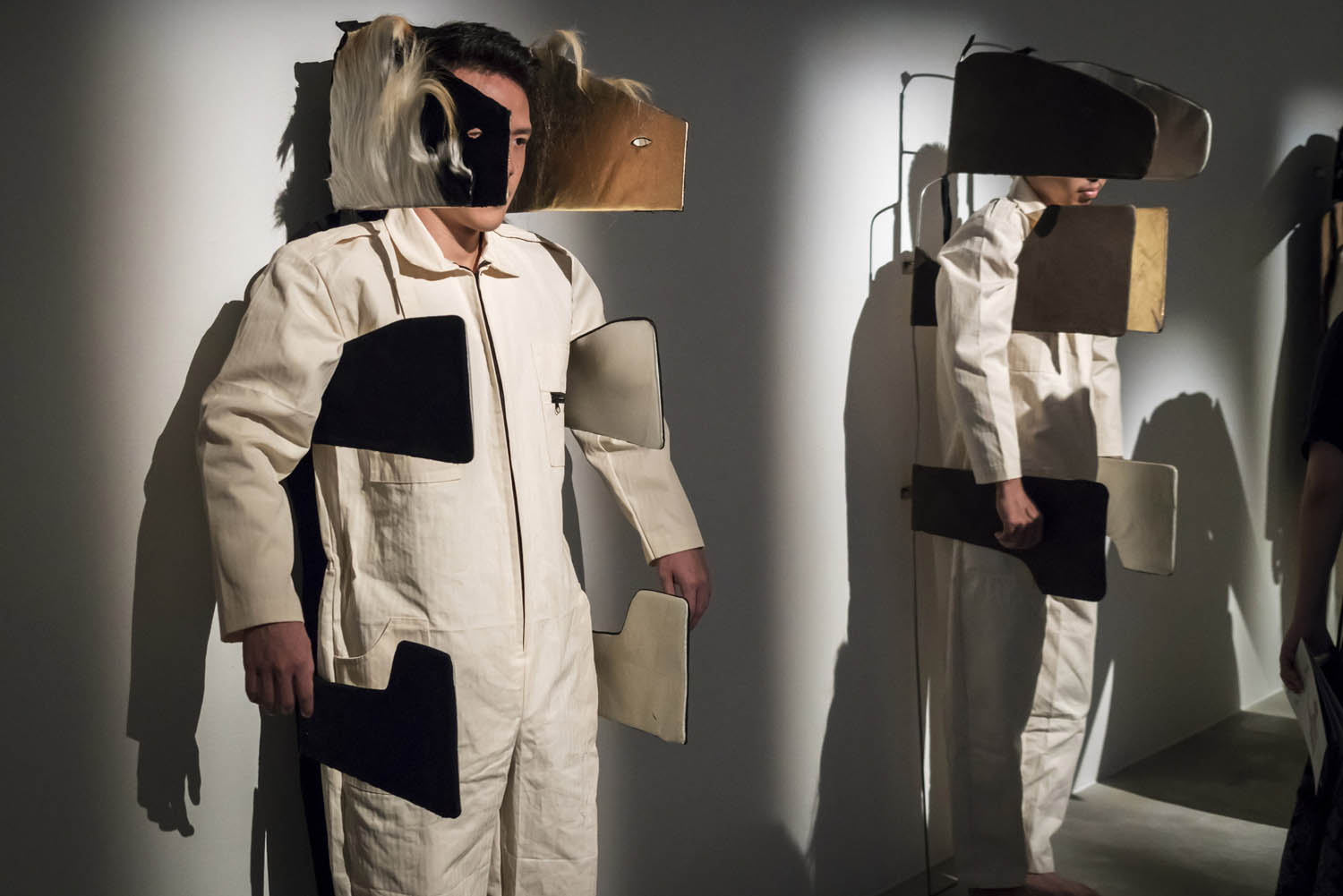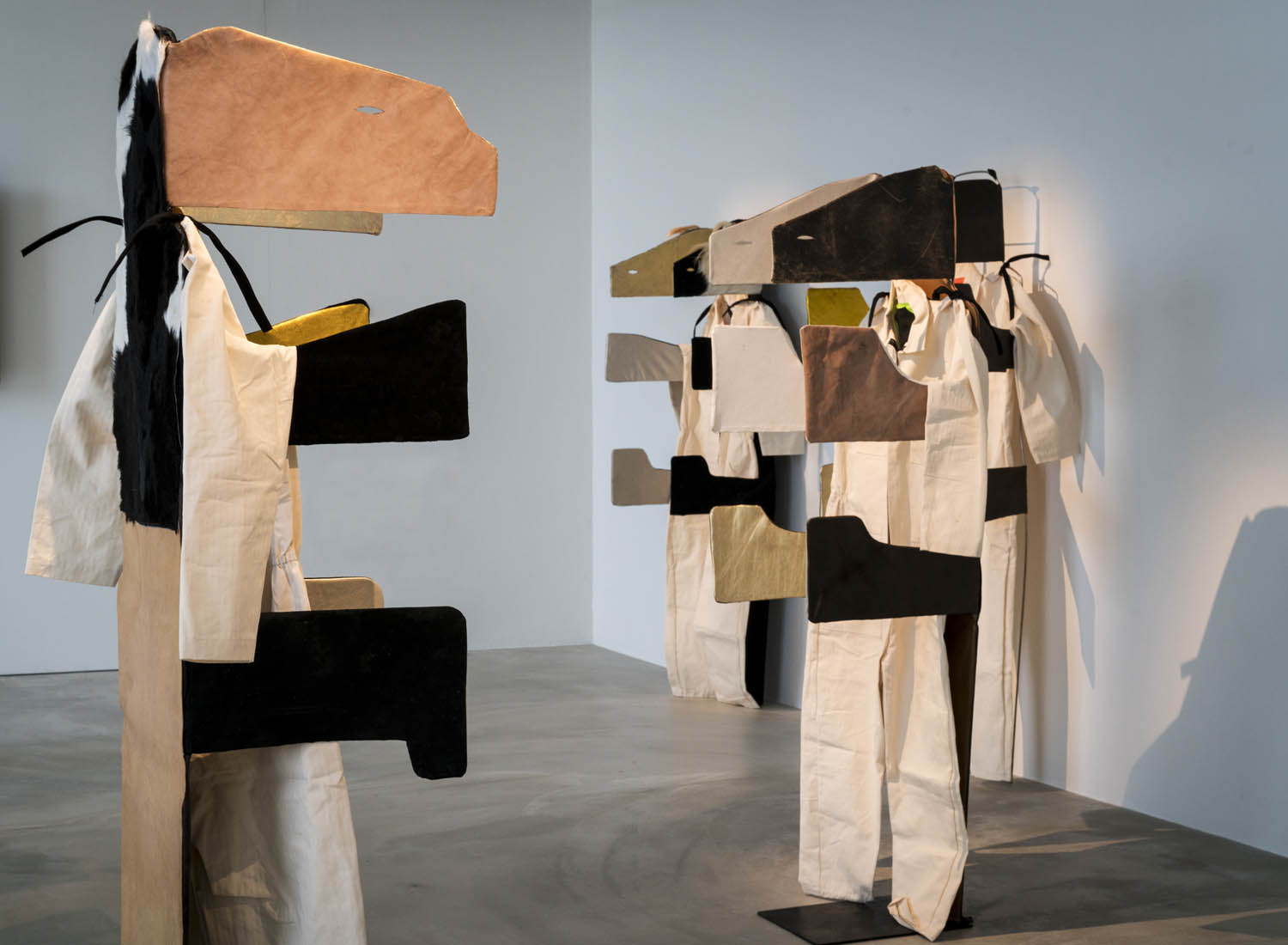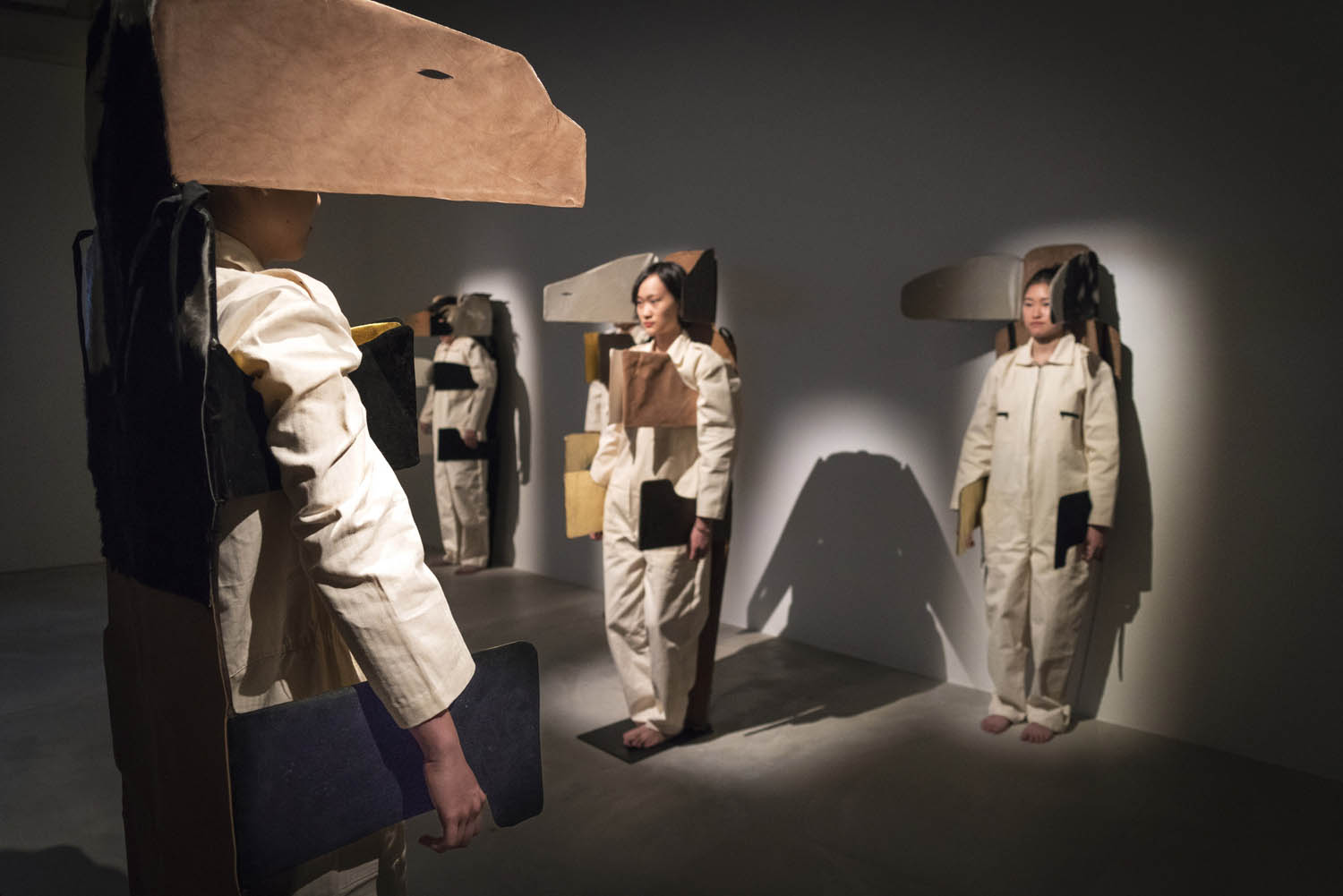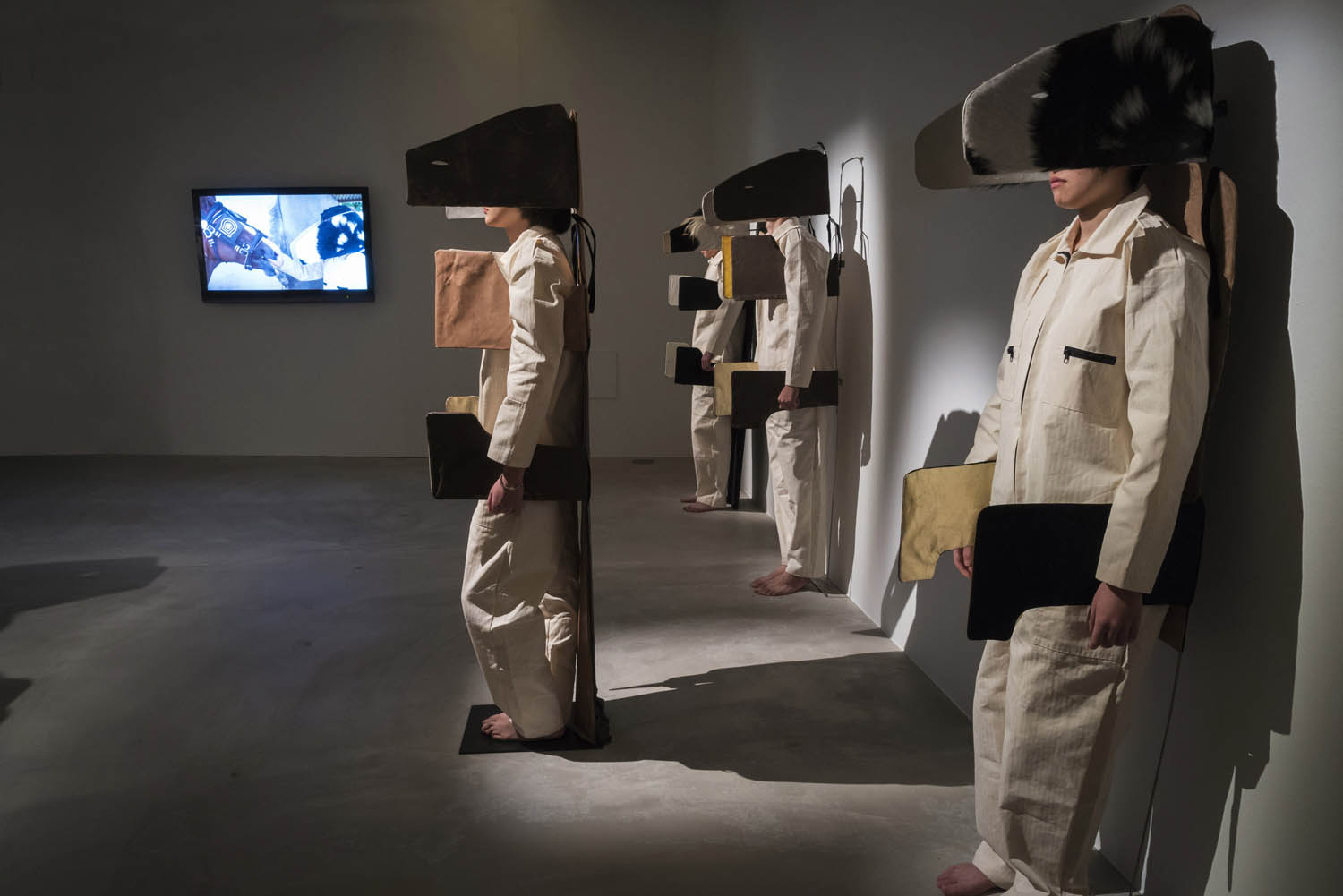Indonesia is probably the country with the most extreme spectrum of sartorial coverings or clothing in the world. In the western-most province of Indonesia– Banda Aceh, bodies must be almost totally covered according to the Sharia law. In the eastern-most province of Papua, people are still using little coverings as many tribal people are wearing penis sheaths or grass skirts. I look at those extremes in clothing as possessing uniqueness and cultural value, which are in decline. During the last twenty years I have been examining habits of clothing relating to social issues. Our clothes are like a facade in which we can hide or appear, inhabit or vacate. I am also interested in the human compulsion of “showing oneself” and ways in which humans look at each other, as well as the question “where do we position ourselves?” I am interested in the politics of clothing. During the last century people world-wide have used clothing as a state of control and have pushed others to change their clothing habits with the aim that clothing is part of a policy to bring a change in mentality; to “civilize” or impose modesty, to adopt a religion, to restrict, but also to free, revolt, etc.
Blinkers
2017 - ‘Blinkers’ 2017 Leather, fur, stainless steel, fabric, silkscreen 5 costumes ‘Mindset’ 2017 Singel channel video, 2 min 18 sec
photography: Mie Cornoedus

